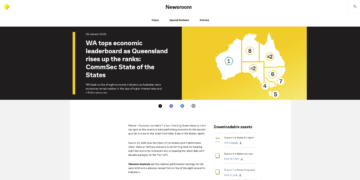“I’m really going crazy!” Recently, Chinese international student A posted on social media, describing how their bank account in Thailand was unexpectedly frozen and how they were required by the Thai tax authorities to pay approximately 310,000 THB in “personal income tax.” However, the funds in question were actually the annual tuition and living expenses provided by their parents.

1. Sudden Freezing of Funds
A stated that at the end of last year, they wired approximately $50,000 (around 1.8 million THB) from the Bank of China to their Thai account, planning to use it for the next two years’ tuition and living expenses. Initially, everything seemed normal — until a week later, when they discovered that the Thai bank’s mobile app was malfunctioning, and their account was locked, making transfers impossible.
“I immediately went to the bank, and they directly told me that the remittance was classified as ‘Foreign Income’ and that I needed to pay 315,000 THB in taxes to the Thai Revenue Department,” A said. “I was completely stunned and couldn’t understand how ‘tuition from my parents’ could be considered income.”
2. New Definition of “Foreign Income” under the New Policy
It appears that all of this stems from Thailand’s Foreign Income Tax Act, which officially took effect on January 1, 2024. According to this new law:
- All funds transferred into Thailand from abroad — even if they come from family support or savings — are classified as “foreign income” and are subject to personal income tax.
- If the remittance is not reported to the tax authorities in advance, it will be considered tax evasion and subject to penalties.
Lawyers have pointed out that the new regulation is primarily aimed at cracking down on tax evasion from overseas income and domestic money laundering. However, in practice, it has severely affected innocent international students and immigrants.
3. Legal Risks and Remedies
A sought further clarification from the tax authorities, but was met with a cold response:
“I cried and told them that this was my parents’ money, not my income. But they just responded indifferently, ‘Once it’s deposited, it’s considered income.'”
Legal Remedies Suggested by Thai Lawyers:
- Seek Professional Legal Assistance
- Consult with a lawyer and challenge the tax ruling in court by providing evidence that the funds were for educational purposes.
- Report in Advance
- If you plan to remit large amounts of money in the future, report the transfer to the Thai Revenue Department before the transaction and clearly state the purpose of the funds.
- Use a Family Member’s or Third-Party Account
- Consider having parents or family members wire funds directly to the official account of the Thai educational institution or accommodation provider to avoid triggering the “foreign income” classification.
- If the funds must go directly into a personal account, label the transaction as “education fees” or “living support” and keep all remittance documentation.
- Split Large Transfers into Smaller Amounts
- Thai banks strictly monitor foreign currency transfers. To reduce the risk of classification as foreign income, divide the transfer into smaller amounts of less than $20,000 per transaction.
- Seek Legal Support if Accounts Are Frozen or Tax Investigations Occur
- If your account is frozen or you are asked to pay additional taxes, consult with a local tax lawyer or financial advisor.
- Legal experts working with ZhaiDian have noted that Thai tax authorities have some flexibility in handling student support funds, so exemptions or reductions may be possible through proper legal procedures.
- Stay Updated on Tax Policy Changes
- 2024 marks the first year of the new Thai tax system, and future adjustments are possible. ZhaiDian will continue to monitor policy changes and provide the latest updates to clients.
💡 Zagdim’s Advice:
👉 1. Report Transfers in Advance and Specify the Source of Funds
Before making international transfers, report them to the Thai Revenue Department and clearly state the purpose, such as “tuition,” “parental support,” or “family gift.”
- Thai tax authorities have a broad definition of “personal income.” If not reported in advance, funds may be automatically classified as “foreign income.”
👉 2. Use a Third Party or Family Member’s Account
Consider having parents or family members directly wire the funds to the official account of the Thai school or accommodation provider rather than a personal account.
- If a personal account is necessary, clearly state the transfer’s purpose as “educational expenses” or “living support” and retain complete transfer documentation.
👉 3. Split Large Transfers to Reduce Risk
Thai banks have strict foreign exchange regulations. Split large sums into smaller transactions (under USD 20,000) to minimize the risk of being flagged.
👉 4. Seek Legal Support if Your Account is Frozen
If the account is frozen or you’re required to pay additional taxes, consult a local tax lawyer or financial advisor.
- Zagdim’s legal partners have noted that Thailand’s tax regulations regarding student financial support are still open to interpretation. A well-supported legal case may result in a waiver or reduction of the tax liability.
👉 5. Stay Updated on Changes to Thai Tax Regulations
2024 marks the first year of Thailand’s new tax system. Policies may be adjusted in the future. Zagdim will continue to monitor policy changes and provide the latest updates to clients.
































